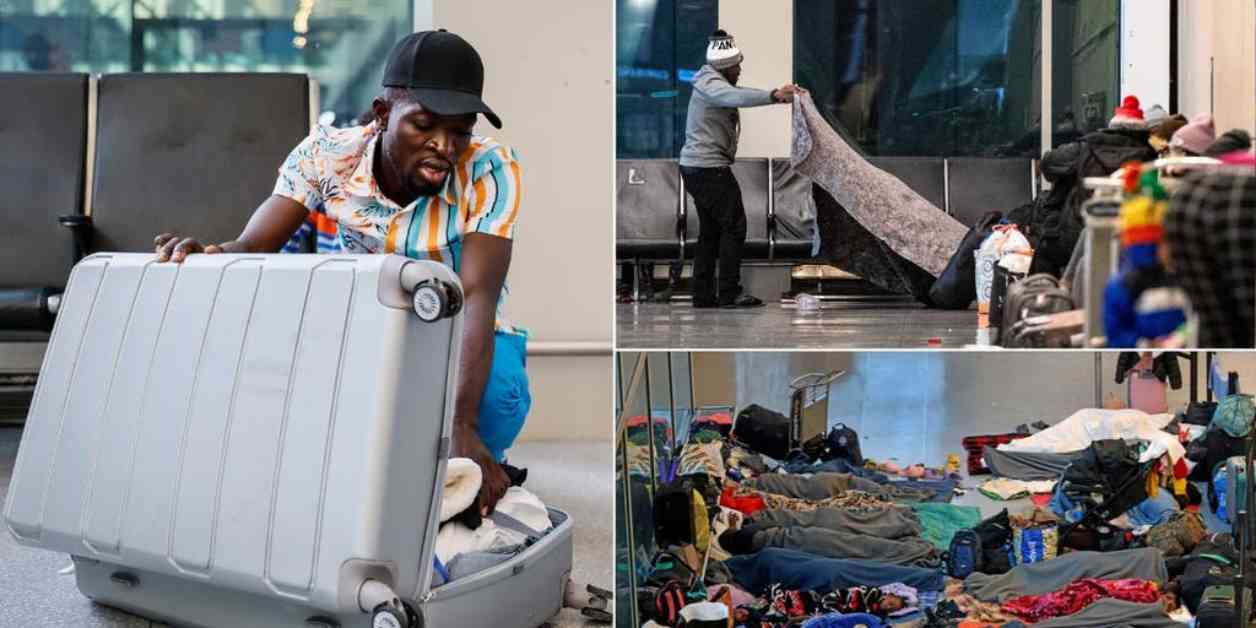Dozens of migrants who have been sleeping on the floors of Boston’s Logan International Airport are being told to leave by the end of the day. This is in response to a new state rule that prohibits this practice, which went into effect. Massachusetts Governor Maura Healey had announced last month that migrants had until July 9 to vacate the airport. They were offered free taxpayer-funded accommodation at a former minimum-security dorm-like facility in Norfolk. The deadline has arrived, and the migrants are now being ordered to leave.
Before the announcement, nearly 300 migrants were using Terminal E at the airport as a shelter. They had set up makeshift beds and air mattresses, but that number had reduced to 56 by Monday. The state has repurposed the Bay State Correctional Center, a former minimum-security dorm-like facility, to accommodate these migrants and homeless families. This facility opened last month and has the capacity to house 140 migrants and homeless families, which is about 450 people. It is located on the grounds of the Massachusetts Correctional Institution, a medium-security prison.
Currently, the re-purposed dorm is housing 105 people, many of whom were previously staying at Logan Airport. Migrants at Logan are being offered accommodation at Bay State, while others are being transferred to new “safety-net” sites. The Norfolk site offers various amenities such as showers, bathrooms, a cafeteria, a gymnasium, a common room, and offices for case management and administrative activities. There are also play areas for children and classroom spaces for adults to learn English and receive job training. The facility is staffed 24/7 by a contracted service provider, and transportation is provided to families on and off the site.
The cost of the entire operation to taxpayers is currently unclear. Efforts are being made to provide migrants with housing assistance, work authorization applications, job placements, and English classes. Massachusetts has had to take a firm stance on new migrants coming to the state due to limited shelter space. The Healey administration has reached out to border officials, NGOs, and migrants to inform them that housing in Massachusetts will not include Logan Airport or the state’s shelter system.
Last summer, a state of emergency was declared due to the surge of migrants into Massachusetts. The 1983 state law, which was passed to address homeless families and pregnant women, has been used to support migrants. Some critics argue that this law does not apply to migrants who are not U.S. citizens. The town of Norfolk, with a population of about 11,500, expressed discontent when they learned about the facility being converted into a migrant shelter. Despite this, Boston Mayor Michelle Wu supported the governor’s decision and called on the federal government to provide assistance.
The situation highlights the challenges faced by cities and states in dealing with immigration issues. It underscores the need for a comprehensive federal approach to address these issues effectively. The ongoing efforts to provide support and resources to migrants reflect a commitment to upholding humanitarian values while also ensuring the well-being of local communities.
